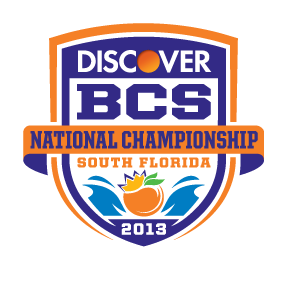Here are the final USA Today Coaches poll, the Associated Press poll, and Jeff Sagarin's computer rankings, as well as an average of all three. The average should approximate what the BCS rankings would be if the BCS issued a final set of rankings after all the bowl games were complete. Unfortunately, the BCS doesn't, so I've taken it upon myself to come up with my own (Note: since Ohio State isn't included in the USA Today Coaches poll, its average ranking is based on the Associated Press and Sagarin rankings):
What can we learn from the national championship game and these final rankings? At least three things:
Of course, as I noted in my previous post ("College Bowls and College Playoffs"), a playoff will not guarantee that the best team will win or that the best two teams will meet in the final. As Leonard Mlodinow points out in his book, The Drunkard's Walk: How Randomness Rules Our Lives,
2. Second, the SEC remains the premier college football league in the country, followed by the Pac 12 and the Big 12 (not necessarily in that order). The SEC has five teams in the top 10; the Pac 12, two; the ACC one; and the Big 10, one. Some may argue that the ACC is better than the Big 12, but while it's top two teams are quite good (i.e., Florida State and Clemson), it doesn't possess the depth that the Big 12 does.
…if one team is good enough to warrant beating another in 55% of its games, the weaker team will nevertheless win a 7-game series about 4 times out of 10. And if the superior team could beat its opponent, on average, 2 out of 3 times they meet, the inferior team will still win a 7-game series about once every 5 match-ups. There is really no way for a sports league to change this. In the lopsided 2/3-probability case, for example, you’d have to play a series consisting of at minimum the best of 23 games to determine the winner with what is called statistical significance, meaning the weaker team would be crowned champion 5 percent or less of the time. And in the case of one team’s having only a 55-45 edge, the shortest significant “world series” would be the best of 269 games, a tedious endeavor indeed! So sports playoff series can be fun and exciting, but being crowned “world champion” is not a reliable indication that a team is actually the best one (pp. 70-71).
Needless to say, crowning a "champion" becomes even more problematic when teams only play each other once, as is the case with single elimination playoffs employed by the NCAA for college basketball and the NFL for professional football, and will be the case when college football moves to a four team playoff beginning in 2014. That said, although a playoff won't guarantee that the best two teams will meet in the championship game, it will increase the odds that the best two teams will at least have a shot at meeting in the championship game.
3. Finally, Notre Dame needs to join a conference so that they play quality teams on a regular basis. Not only will this provide others with a more realistic appraisal of the team's ability, but it will better prepare Notre Dame for teams like Alabama. It simply wasn't ready for the speed and size that it encountered on Monday night. Indeed, the game against Alabama was reminiscent of when Notre Dame played Oregon State in the 2001 Fiesta Bowl. Oregon State had lost a game and didn't qualify for the national championship game, and since it didn't have Notre Dame's reputation, many thought it was an evenly matched game. The final score: Oregon State 41, Notre Dame 9 (and it wasn't even that close).


No comments:
Post a Comment